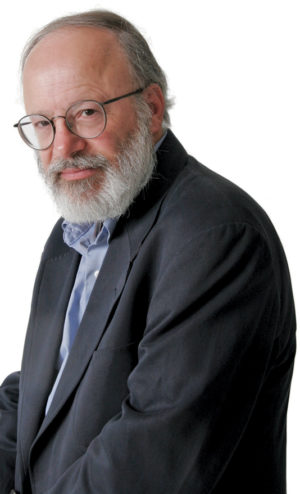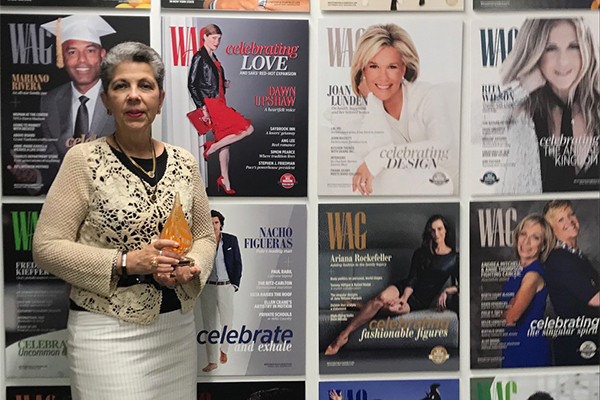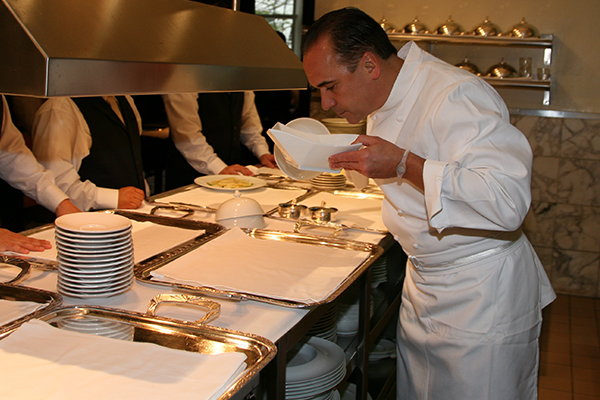
Aug. 20, 1947 marked the end of the Nuremberg Doctors”™ Trial, in which criminal proceedings had been brought against 23 German physicians and administrators before an International Military Tribunal in Nuremberg, Germany. The defendants were accused of willingly participating in war crimes and crimes against humanity during World War II. These included the systematic killing of people the Nazi regime decided were not worthy of life and conducting medical and pseudoscientific experiments on thousands of people without their consent.
The 75th anniversary of the trial is scheduled to be marked on April 28 during a Yom Hashoah Symposium held virtually by New York Medical College (NYMC) in Valhalla. Yom Hashoah, Holocaust Remembrance Day, was first marked in Israel in 1949.
This year”™s commemoration by NYMC is scheduled to feature a presentation by George J. Annas, the William Fairfield Warren distinguished professor at Boston University and director of the Center for Health Law, Ethics and Human Rights at its School of Public Health. He is also a member of the university”™s Department of Health Law, Policy and Management at the School of Public Health and a professor at BU School of Law and its School of Medicine.
According to the Harvard Law School Library”™s Nuremberg Trials Project, 16 of the Doctors”™ Trial defendants were found guilty and seven of them were sentenced to death. Seven other defendants were acquitted. Harvard reported that the experiments included “the effects of and treatments for high-altitude conditions, freezing, malaria, poison gas, sulfanilamide, bone, muscle and nerve regeneration, bone transplantation, saltwater consumption, epidemic jaundice, sterilization, typhus, poisons and incendiary bombs.”
The Nuremberg Code ”” which defines boundaries governing medical experimentation, including the concept of informed consent ”” grew out of the Doctors”™ Trial.
“It talks about consent being volunteering, competent, informed and understanding,” says Annas, who has written or edited 20 books on health law and bioethics. “No one should”™ve been asked to be part of a human experiment unless they volunteered, they did so of their own free will and they knew what was going to happen. They (needed to be) informed not only that they didn”™t have to take part in this experiment but what the experiment was and what the risks of the experiment were and that they also had a right to end the experiment at any time.”
Annas said that experiments conducted by the Nazi doctors often ended in death and treated the human subjects, primarily Jews in concentration camps, worse than animals. Annas pointed out that even the Nazis had laws against cruelty to animals.
“It was a big deal for the judges to say not that the problem with the German experiments was informed consent but that an issue for all experiments, for anyone who did them in the future, was informed consent,” Annas says. “The potential subject had to be informed and, more than that, had to understand what the risks were of the study that he or she was getting involved with.”
Annas adds that while the medical experimentation that takes place today does not have evil intent, the concept of informed consent is important to protect those who volunteer to participate in clinical trials of new drugs or accept the use of experimental treatments to combat diseases they may have.
“The challenge of taking it seriously remains a core issue. What we”™ve done in the West, actually most of the world, in order to say that we”™re taking informed consent seriously, is we”™ve set up two procedural devices, which were not known at the time of Nuremberg,” Annas says. “One is the consent form. We now have a form where we write down all of this information that we think everybody should know. That”™s evidence primarily to protect the research institution that the subject was told about the risks. The second procedural device is called the institutional review board, in which a group of peers at an institution reviews the research protocol to see if the risks are outweighed by the benefits and that the subject actually understands what he or she is getting involved in.”
Annas expressed a belief that most physicians and public health officials will say they consistently try to take ethics into consideration, but war and pandemics, two current world realities, have always been exceptions to not adhering strictly to rules.
“You have to act fast to save lives. That”™s the general rationale,” Annas says for bending normal rules of ethical conduct. “The Nazis used that rationale, too. They said, ”˜We were at war and in wartime you have to do things for the survival of the country that you might not be able to do in peacetime.”™”
When the U.S. Food and Drug Administration (FDA) approved administration of Covid vaccines through emergency-use authorization, it could not tell people all of the risks and the benefits, because it didn”™t know. It had only done quick studies, which indicated the vaccines would not kill people.
“It”™s reasonable. This is a pandemic. Literally, millions of people are dying around the world, and we”™ve got to get something out there to try to save their lives,” says Annas, a member of the National Academy of Medicine and a fellow of the American Association for the Advancement of Science. “It”™s not that informed consent is not an issue. It”™s not as central an issue as it is in peacetime or without a pandemic. We do let people say ”˜no,”™ We”™re not going to require you to take it if you”™re going to stay away from people.”
“When we”™re talking about mask requirements or a vaccine passport, those are not conditions that physicians have set on patients. They”™re conditions that public health authorities have set on citizens,” Annas says. “We have this big debate, ”˜We”™re going to follow the science, we should follow the science, I”™m not going to be political.”™ I think that public health is inherently political, that the judgment about whether everybody should be masked or be able to go to restaurants or travel with or without wearing a mask or requiring a vaccine passport are not inherently medical decisions or scientific decisions. Those are decisions based on public perception and public health perception of the risks to society, not the risks so much to the individual.”
Annas says that people should be informed by history and he hopes people attending the NYMC virtual event will realize that matters of informed consent, risks and public-health decrees are modern day problems.
Co-founder of Global Lawyers & Physicians, an organization dedicated to promoting health and human rights, he expressed concern about what Russian targeting of medical facilities and personnel during the war in Ukraine shows about how some people view the medical community. The World Health Organization reported that as of March 20, the Russians had deliberately attacked at least 52 Ukrainian hospitals and other health-care facilities.
“This is a big issue. Historically, this concept of medical neutrality was that physicians, nurses, health workers, people bringing food and clothing even, as long as they were neutral, as long as they didn”™t take up arms, they should be outside the fight,” Annas says. “They should be free to go wherever they want to go. They should not be captured, not be part of the war at all. That was more or less observed until about the last 20 or 25 years. It just went away. To blow up hospitals is a war crime. But we haven”™t taken it seriously enough. We haven”™t been horrified. We have to get that back. The white coat and the Red Cross and (Red) Crescent should give you freedom to practice medicine in a war zone without being targeted. It”™s just barbarism right now.”
For more on the Yom Hashoah Symposium, visit nymc.edu/news-and-events.



















